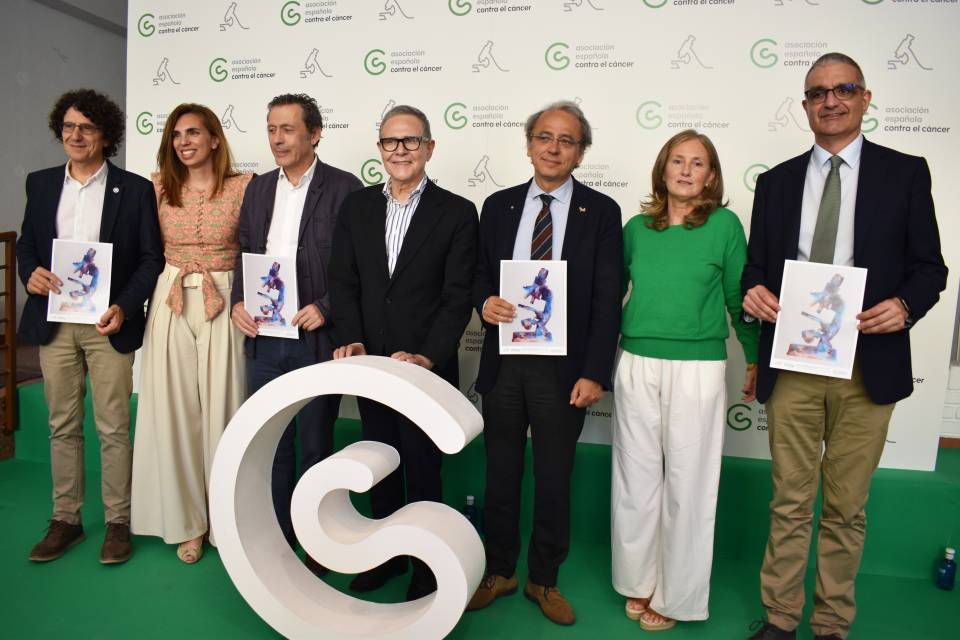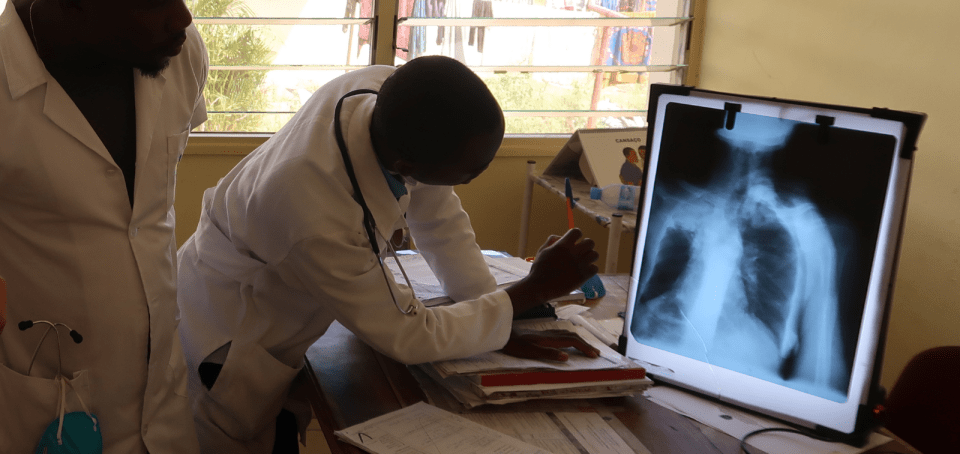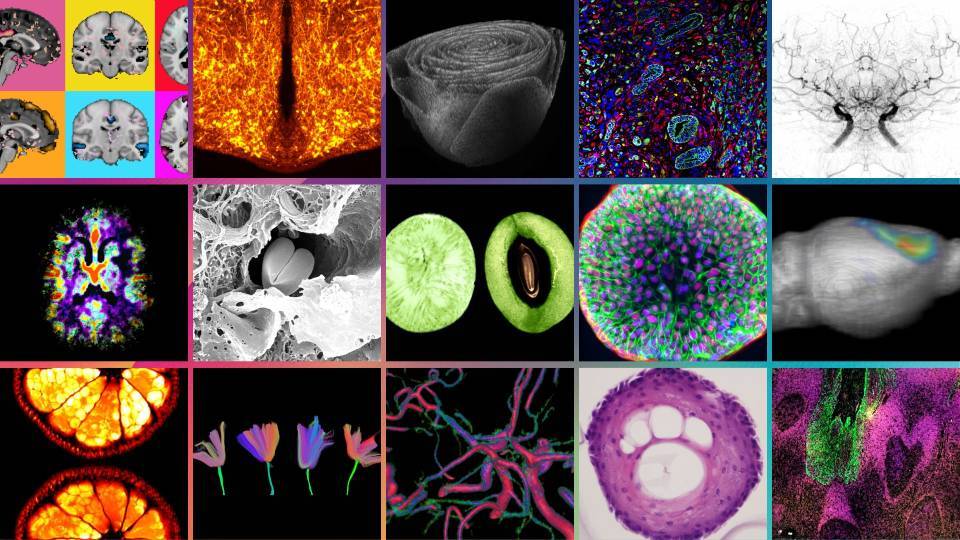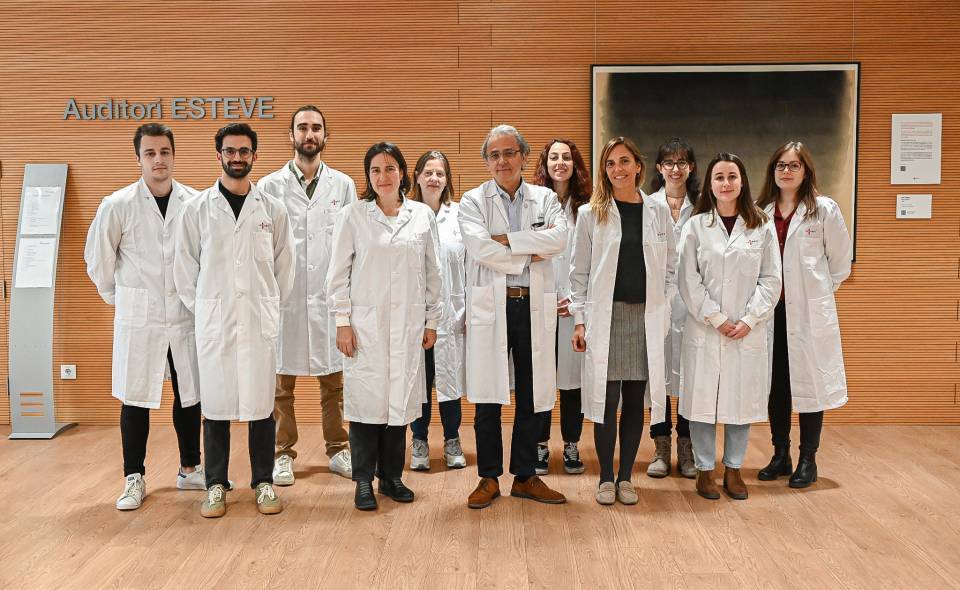The Spanish Association Against Cancer (AECC) has awarded the largest philanthropic grant given so far in the country to research low-survival cancers in Spain: two new grants for oncology research projects, for a total sum of 18 million euros, distributed across 20 Spanish provinces with over 350 researchers involved.
One of the grants is dedicated to liver cancer research, led by Drs. Josep M. Llovet, head of the IDIBAPS group in Translational research in hepatic oncology, professor of medicine at UB, ICREA professor, and professor of medicine at the Icahn School of Medicine at Mount Sinai; and Xosé R. Bustelo, research professor at the Spanish National Research Council (CSIC) and director of the Cancer Research Center of Salamanca (CIC - University of Salamanca). In addition to Dr. Llovet as the study coordinator, IDIBAPS participants include Drs. Juan and Benitez (Immunology Service), Dr. Forner (Hepatology Service), Drs. Pinyol and Gris-Oliver (Translational Research in Hepatic Oncology Group), and Dr. Arnaiz from the CTU. The other grant is for a small cell lung cancer research project led by Drs. Luis Paz-Ares and Marcos Malumbres.
Improving liver cancer survival
Approximately 6,500 cases of liver cancer are diagnosed each year in Spain, with hepatocellular carcinoma being the most common primary tumor. This type of tumor is highly aggressive, with cure rates below 30%. Tumor resection through surgery or liver transplantation are the main current treatments, although they are only applicable to 25% of patients. Moreover, these tumors tend to recur in 30-50% of cases three years after surgery.
Immunotherapy and surgery for hepatocellular carcinoma patients
The Clínic-IDIBAPS and the Cancer Research Center of Salamanca are coordinating the "ASPIRE-AECC: Improving survival of liver cancer patients by combining Immunotherapy and surgery" grant. This six-year project aims to conduct a randomized clinical trial to increase survival in early-stage hepatocellular carcinoma patients at high risk of tumor recurrence after surgical removal. The approach involves administering immunotherapy (atezolizumab plus bevacizumab) before and after tumor surgery to enhance anti-tumor immune response.
The project will also define markers to predict treatment response, aiming to advance towards more personalized therapy. Additionally, it will identify alternative therapies for patients who show resistance to immunotherapy treatment.
The clinical trial will be conducted at 15 hospital centers, while laboratory studies will be carried out at 10 basic-translational research centers. A total of 40 doctors and researchers from 25 centers located in 15 provinces will participate in the project: A Coruña, Badajoz, Barcelona, Bizkaia, Cantabria, Córdoba, Girona, Lleida, Málaga, Madrid, Navarra, Salamanca, Sevilla, Valencia, and Zaragoza.
"We are confident that the multifaceted nature of this consortium, combined with the demonstrated expertise of the various groups in conducting clinical trials and disruptive research, makes our overarching goal achievable: to equitably improve overall survival in patients with hepatocellular carcinoma," stated the project coordinators.
Objective: achieve a 70% survival rate in cancer
The grants, announced at the headquarters of the Association in Madrid on June 19th, are one of the main work streams through which the Association aims to achieve a 70% cancer survival rate by 2030. These grants are also notable for their territorial reach, as they will bring research closer to patients, improving their access to research outcomes through nationally distributed teams of researchers and medical professionals.
These two grants fall under the framework of the AECC Challenge Grant for 70% Survival, aimed at projects addressing an unresolved clinical need. The goal is to increase survival rates for types of cancer with low survival rates and widespread national distribution, such as lung and liver cancer in this instance.




